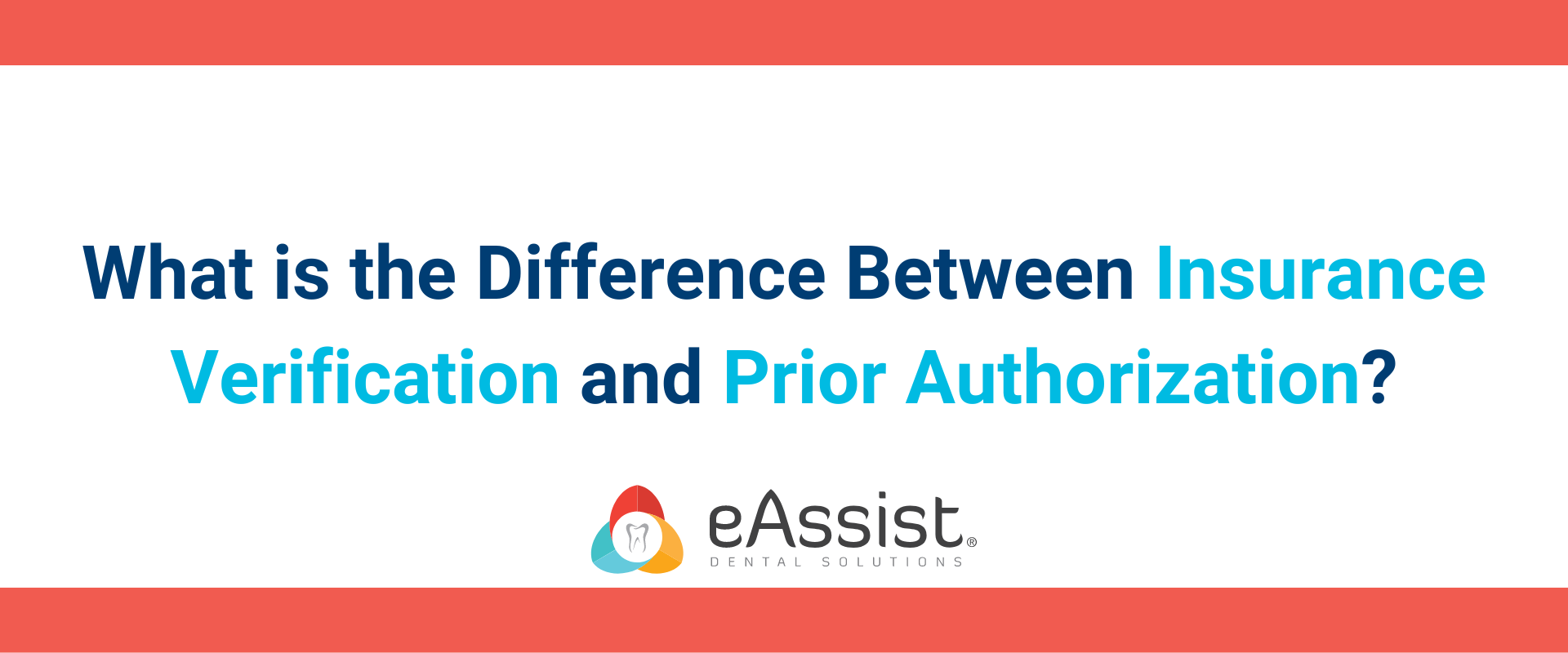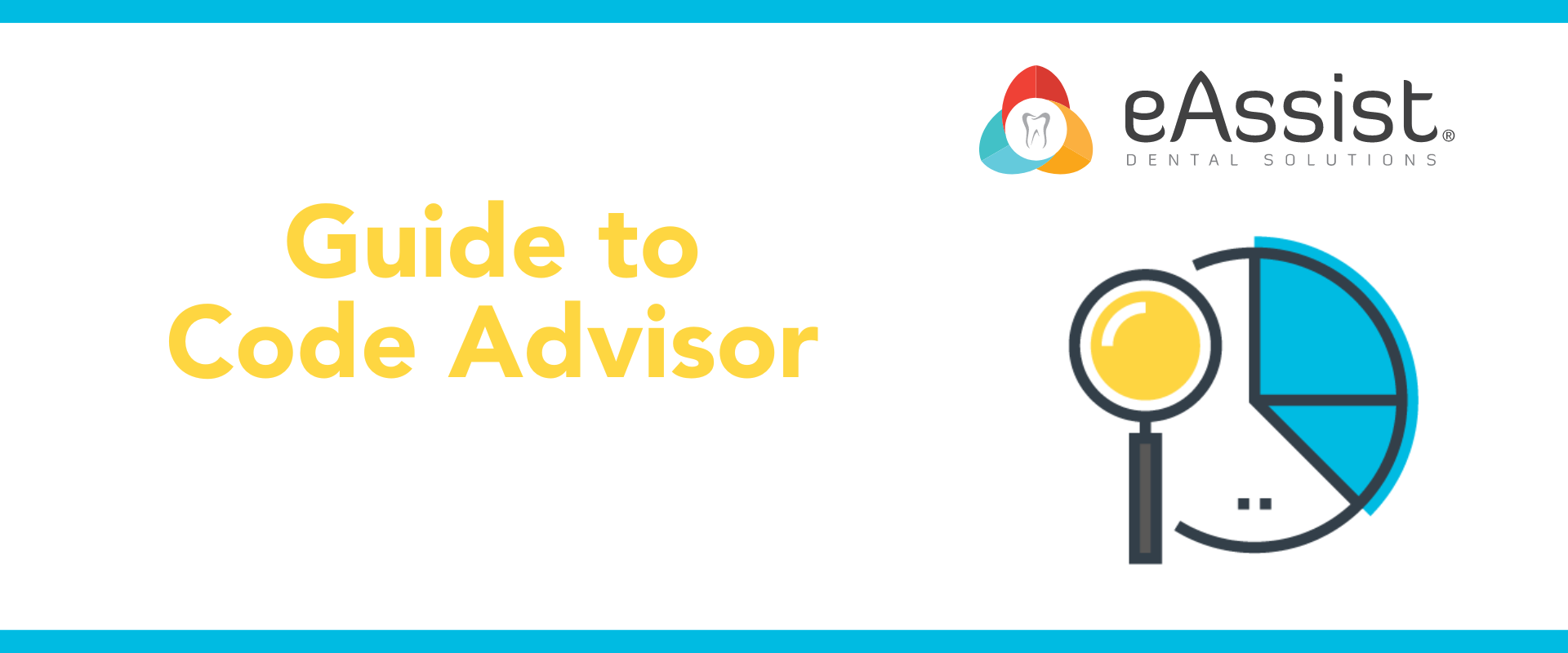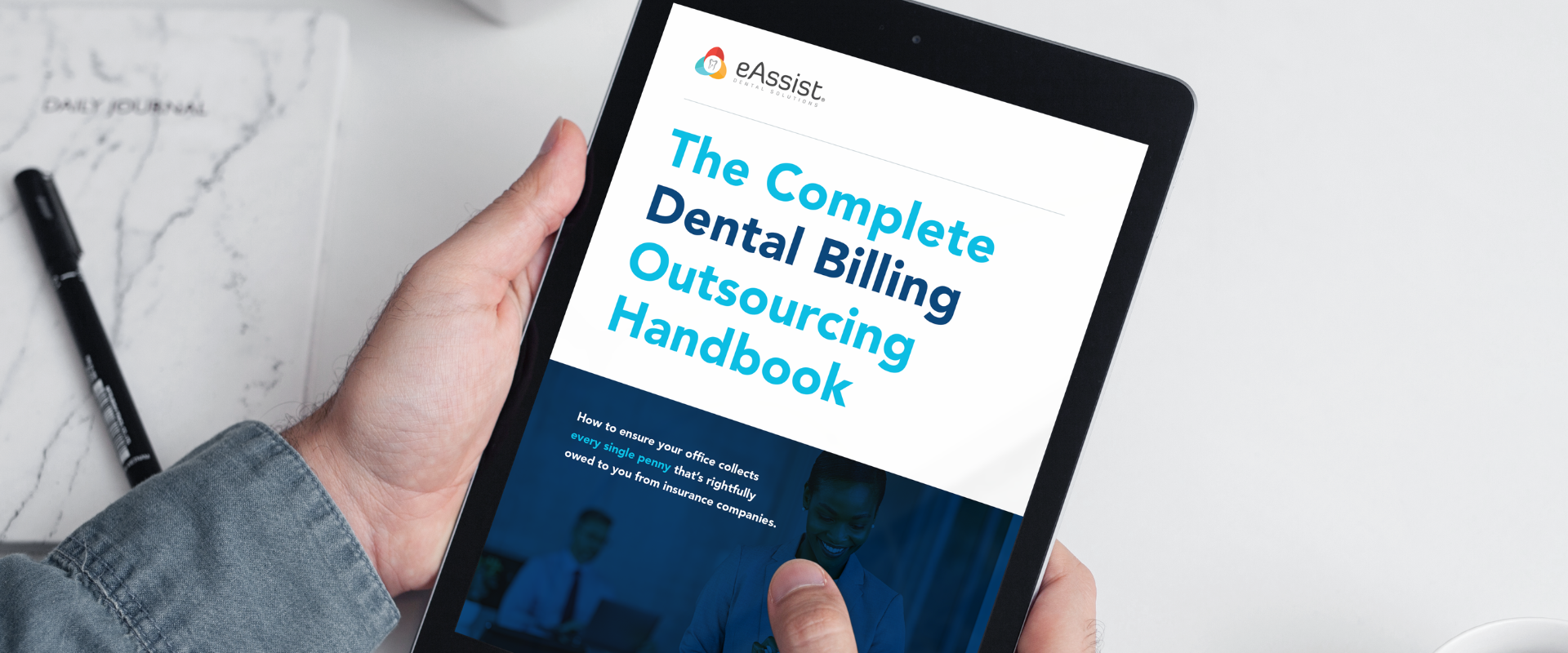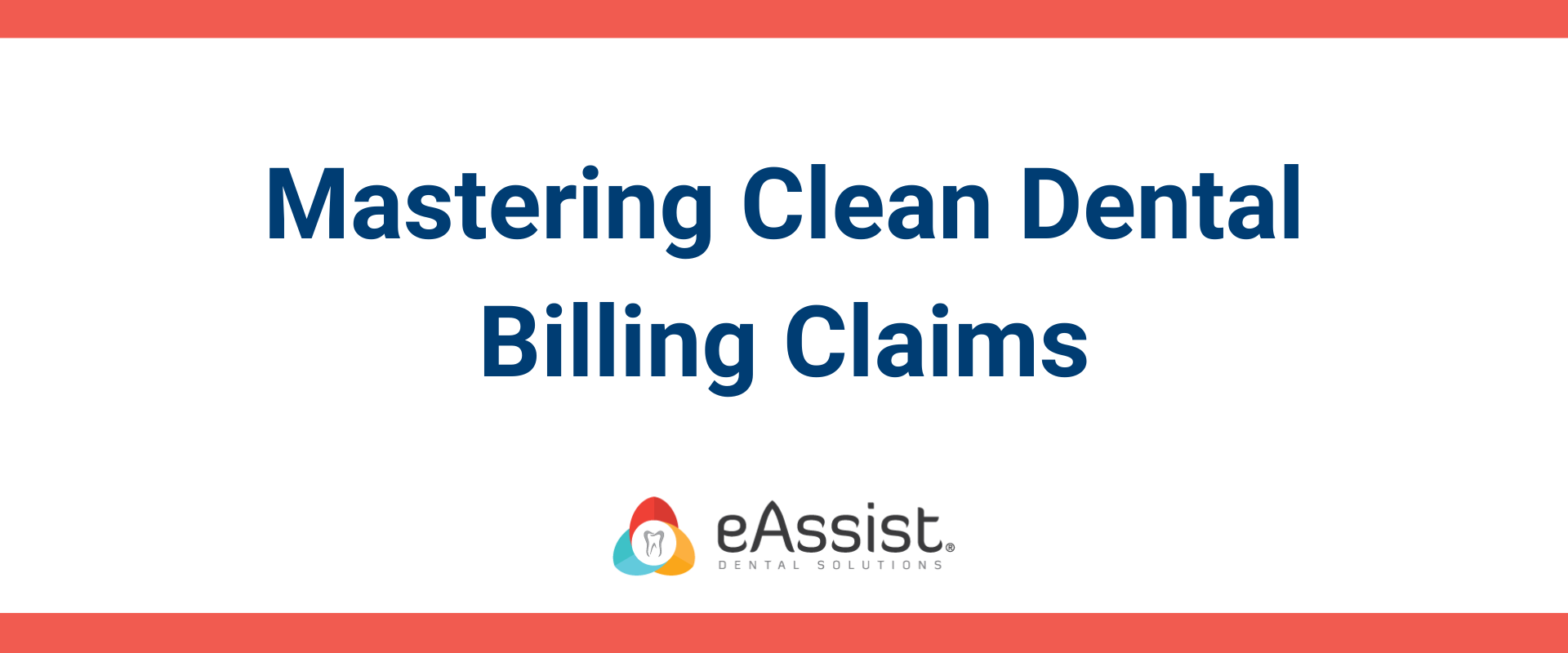When billing dental claims you’ll be sure to come across an EOB that has denied certain treatments with the explanation that they required prior authorization. You may be confused because you already contacted the insurance and verified the patient’s coverage, so, doesn’t that mean that they already authorized you to treat them? Not exactly, because insurance verification and prior authorization are actually two very different things.
What is insurance verification?
Insurance verification is the process of contacting a patient’s insurance company and verifying the coverage available for treatment. It may sound simple but it’s actually an involved process because there are several factors that need to be addressed, from the validity of the coverage (some people forget to update their insurance cards), to plan limitations such as deductibles, annual maximums, and frequency limits, to whether specific treatments are covered. It’s a detailed process that can take up a large portion of the workday and, as such, you may want to consider outsourcing it.
What is prior authorization?
Prior authorization is when treatment needs to be pre-authorized in order for it to be covered by an insurance company. Essentially, they must pre-approve the treatment before it can begin. If not, it will be denied with little to no chance of appeal.

Is insurance verification necessary to get treatment paid?
Technically, you can bill a claim without first verifying the insurance coverage but your chance of getting reimbursed is very slim. Insurance verification confirms that everything is in order prior to billing a claim. When you verify a patient’s insurance coverage you greatly improve your chance that the claim will be paid with little or no impediment. When you don’t, there’s a good chance the claim will be denied and the patient will be quite unhappy.
Is prior authorization necessary to get treatment paid?
Absolutely, when prior authorization is required it’s the only guarantee that a claim will be paid. Without it, the claim will be denied except in the most extreme circumstances. A rare exception is made when emergency treatment is required at a time when it’s impossible to get a pre-authorization, such as after hours or on the weekend, and, even then, it’s not always covered.
What is needed for insurance verification?
Time is the most important tool needed for insurance verification. It’s a pretty long process to confirm coverage for a patient as there are so many different aspects of the plan to consider. If the verification requires a phone call you can expect a lengthy hold time and, In fact, some carriers have been known to have ones that are over an hour long.
In addition, it’s essential to have the correct patient information when attempting verification. Due to HIPAA laws, an insurance company can only provide verification if they’re certain you are both referring to the same patient. Any discrepancy with the spelling of a name, a date of birth, a patient or subscriber identification number, or even a home address will prevent them from verifying the patient’s coverage, so it’s important to make sure all information on file is correct.
Due to the lengthy processing time, again, consider outsourcing to experts who have the experience and time to take care of all your insurance verification needs.

What is needed for prior authorization?
Most prior authorization requires a request from the provider for insurance approval for the proposed treatment. Several carriers have specific forms that need to be completed in order to obtain this authorization. It’s extremely important that this be completed prior to beginning any treatment. Often, there’s no chance to backdate pre-authorization and once a treatment is completed all opportunity to obtain it is lost.
What treatment needs to be pre-authorized?
This varies based on the insurance plan. Often, HMOs will require specialty treatment (endodontics, oral surgery, etc.) to be pre-authorized. In addition, both Medicare Advantage plans and active duty military plans tend to require pre-authorization for any treatment beyond the most basic, like exams and x-rays. Otherwise, it’s best to confirm with the carrier during the insurance verification process as to whether or not they require pre-authorization.
On the surface, insurance verification and pre-authorization seem identical but, in reality, they are two completely different processes. Though different, they both take up a significant amount of time to complete and require a lot of attention from office staff. At eAssist, the Success Consultants who use our platform are experienced in both of these processes and are happy to assist in your insurance verification and pre-authorization needs, thus allowing you more time to focus on your patients. To learn more, complete the form below.








0 Comments